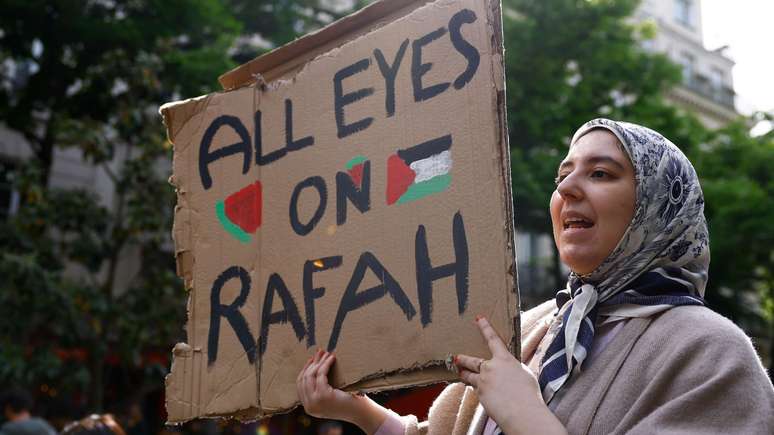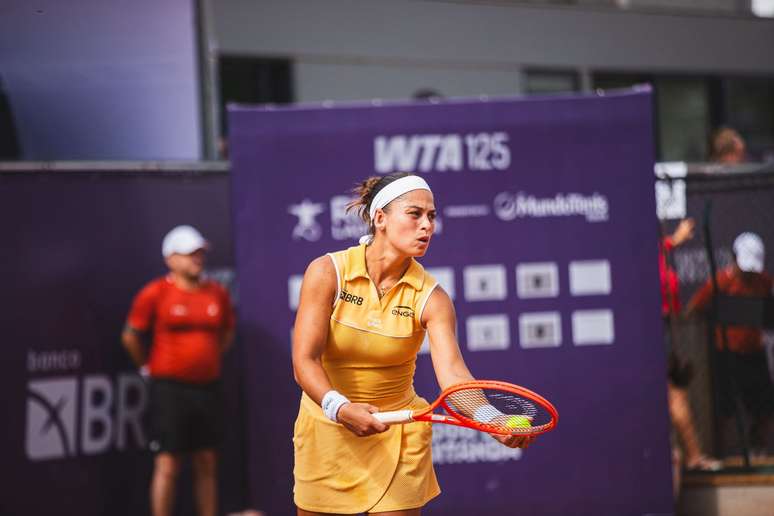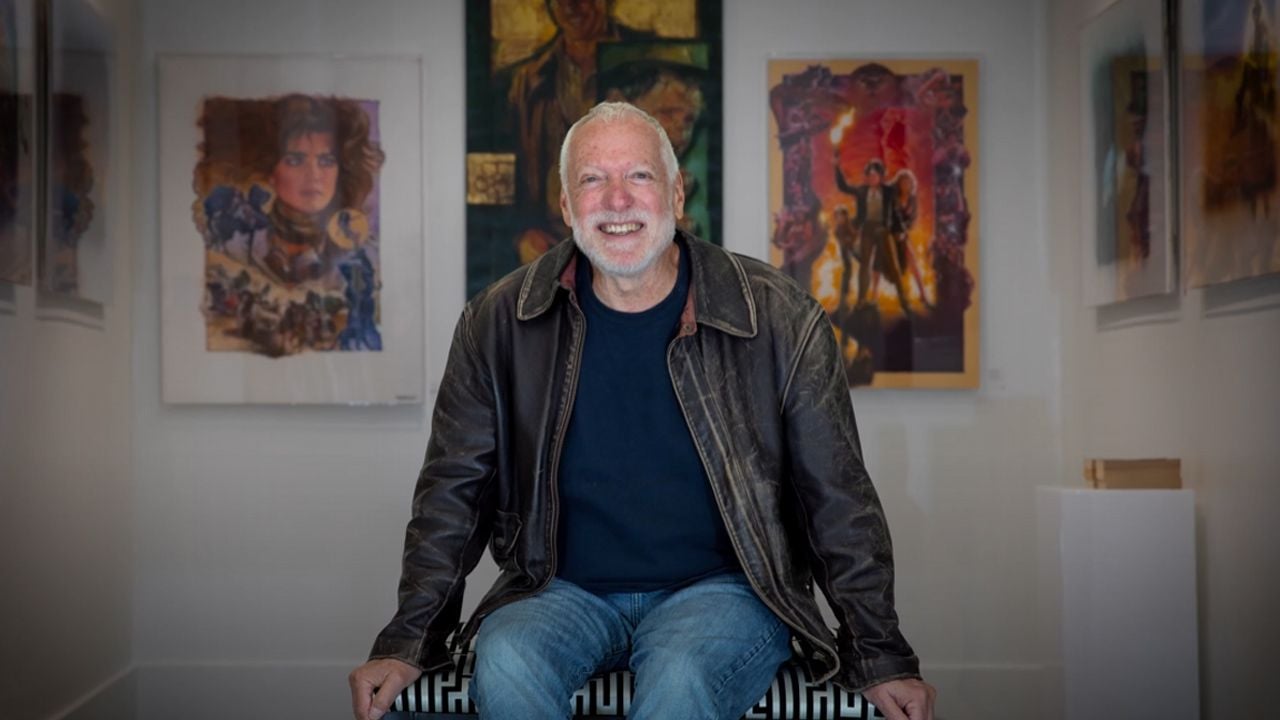An AI-generated image with the text “All eyes on Rafah” has been shared more than 44 million times on social media. The phrase and image went viral after an Israeli airstrike and ensuing fire killed at least 45 Palestinians on Sunday. BBC Arabic investigated the origins of the phrase.
An image showing Palestinian refugee camps and the AI-generated phrase “All eyes on Rafah” is making the rounds on social media.
BBC Arabic identified Malaysia as the origin of the post, which has since been shared by more than 44 million Instagram users, including celebrities from India, Pakistan and Puerto Rico.
The image and phrase went viral following the recent Israeli airstrike on a Palestinian refugee camp in the southern Gaza city of Rafah and the fire that followed.
According to the Hamas-run Health Ministry, at least 45 people have died, including several women and children. Hundreds more were treated for severe burns, fractures and shrapnel wounds.
Several world leaders, heads of state and international organizations condemned the action and expressed sadness over the deaths.
Benjamin Netanyahu, Israeli Prime Minister, called the attack a “tragic mistake”, confirming that the action is being investigated.
White House National Security Council spokesman John Kirby described the scenes as “heartbreaking.” But he said “there will be no political changes.”
According to an IDF (Israel Defense Forces) spokesperson, the attack aimed to eliminate Hamas leaders. According to Israel, two senior members of the Hamas leadership were killed in the attack. The spokesman added that the munitions used in the attack were low-powered and would not have been capable of causing the fire that engulfed the camp’s tents, resulting in the large number of deaths.
According to analysts, the statement suggests that the flames were caused by the presence of Hamas weapons stored nearby. However, the information has not been confirmed.
After the attack on the tents in Rafah, the image was posted on social media by a young Malaysian and went viral, according to an analysis by BBC Arabic.
But how was the image born?
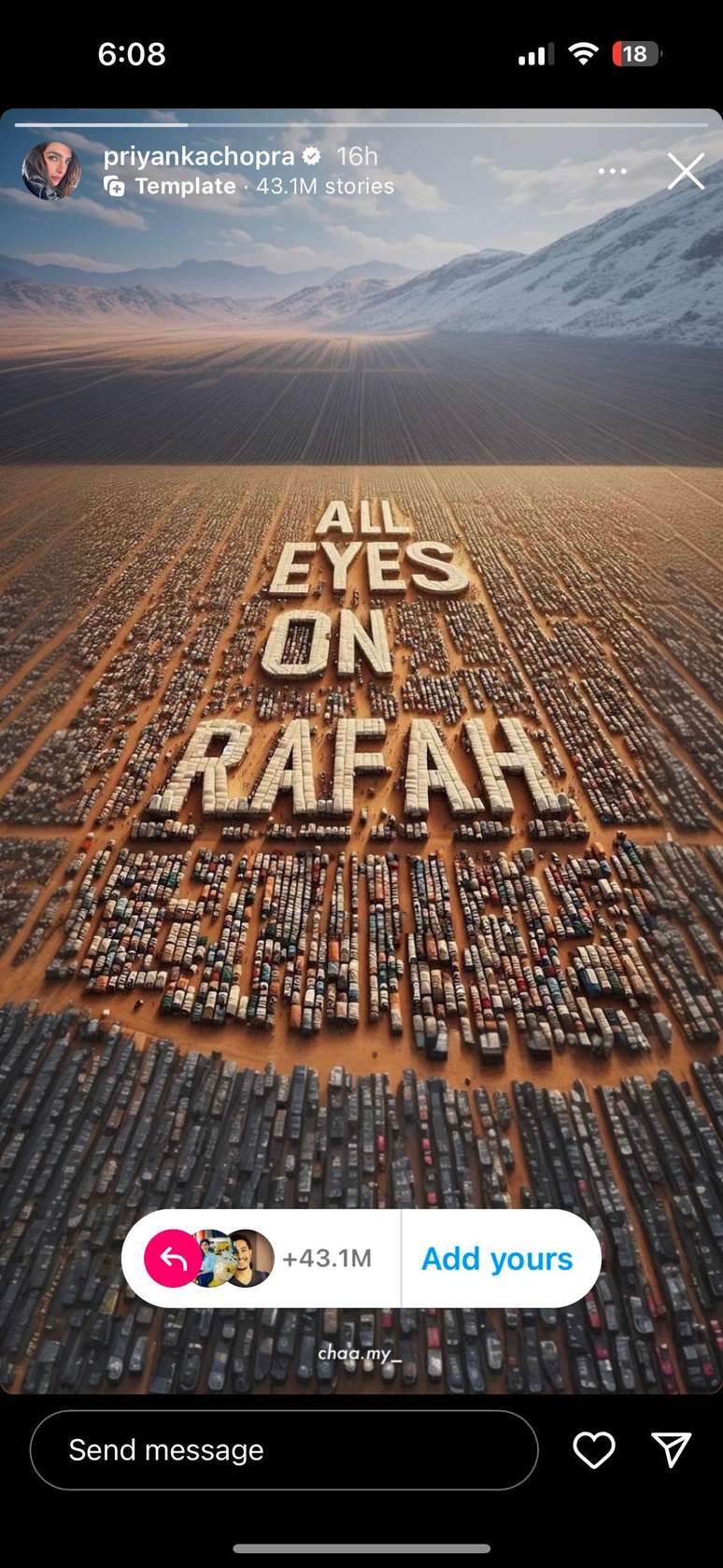
Where does the slogan “All eyes on Rafah” come from?
After the Israeli attack on tents near Rafah, posts appeared quoting Richard Pepperkorn, representative of the World Health Organization in the occupied Palestinian territories.
He told reporters in February that “all eyes are on Rafah,” taking a stand against an attack by Israeli forces on the city.
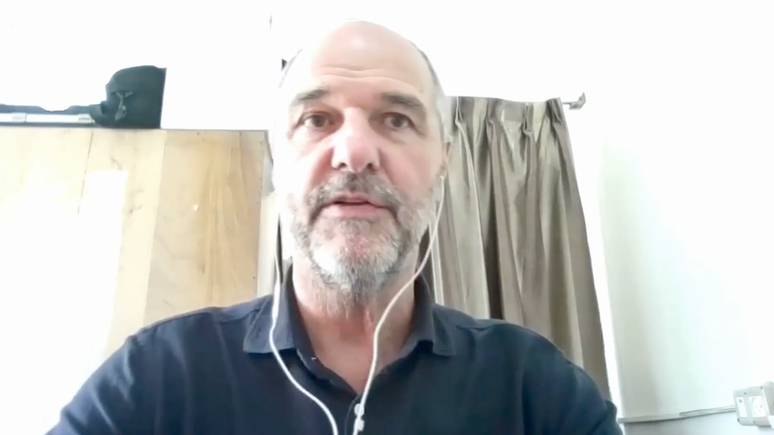
The phrase was uttered by Pepperkorn in an online conversation with journalists at the United Nations headquarters in Geneva.
He said he feared an “unimaginable disaster” if the Israeli army carried out a large-scale incursion into the city.
Since then, officials and activists have repeated Pepperkorn’s phrase to express concern and opposition to an Israeli military operation in Rafah.
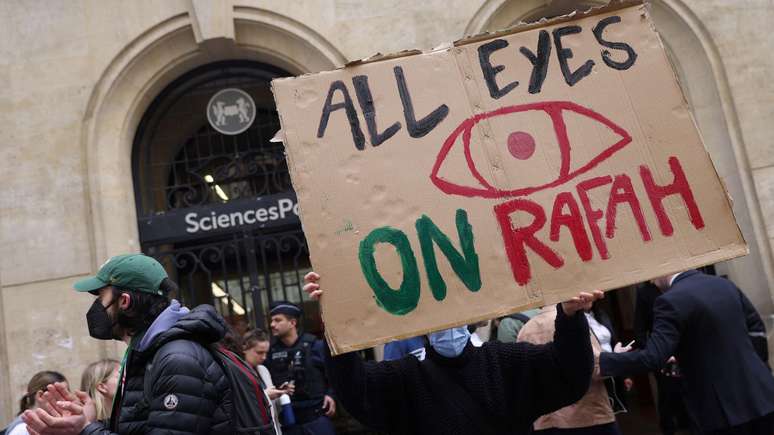
In the months that followed, the phrase “All eyes on Rafah” was seen at protests around the world and in social media posts.
Irish singer Clare Sands used this phrase in a post, calling on politicians to stop any offensive in the city.
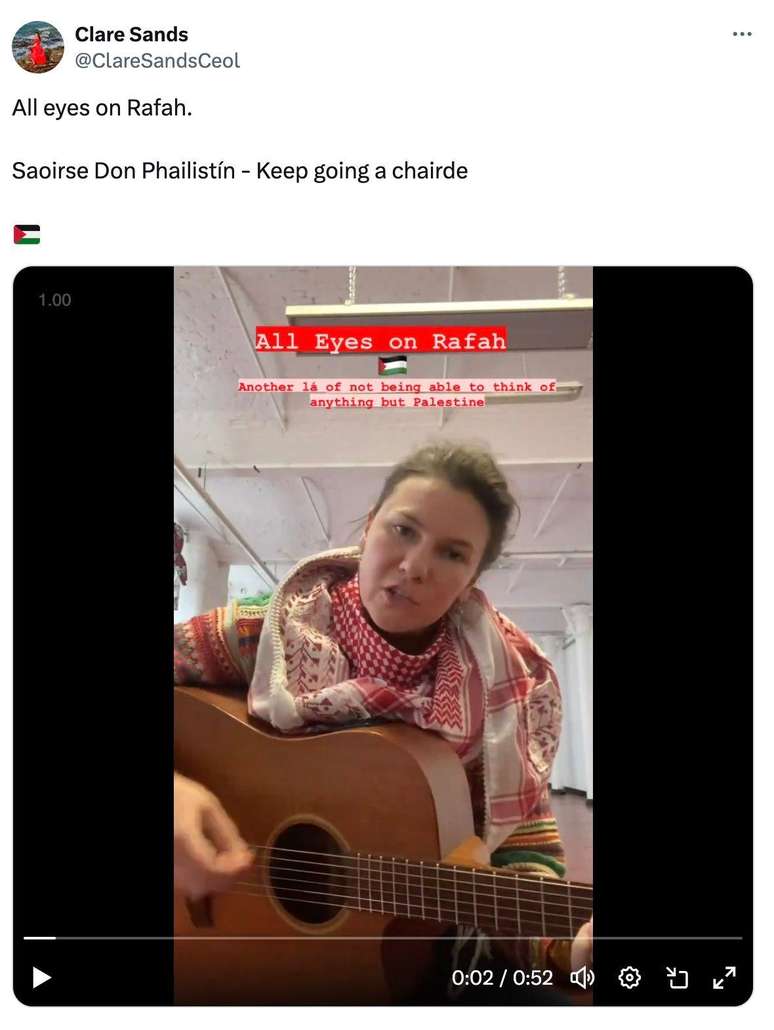
How did the photo spread on social media?
Demonstrators in several cities have also used the phrase on posters in solidarity protests.
The original image posted in Malaysia used the phrase that became famous in February.
Celebrities who have shared an image with the phrase include pop singer Ricky Martin, Turkish actress Tuba Buyukustun, Indian actress Priyanka Chopra and Syrian actress Kinda Alloush.
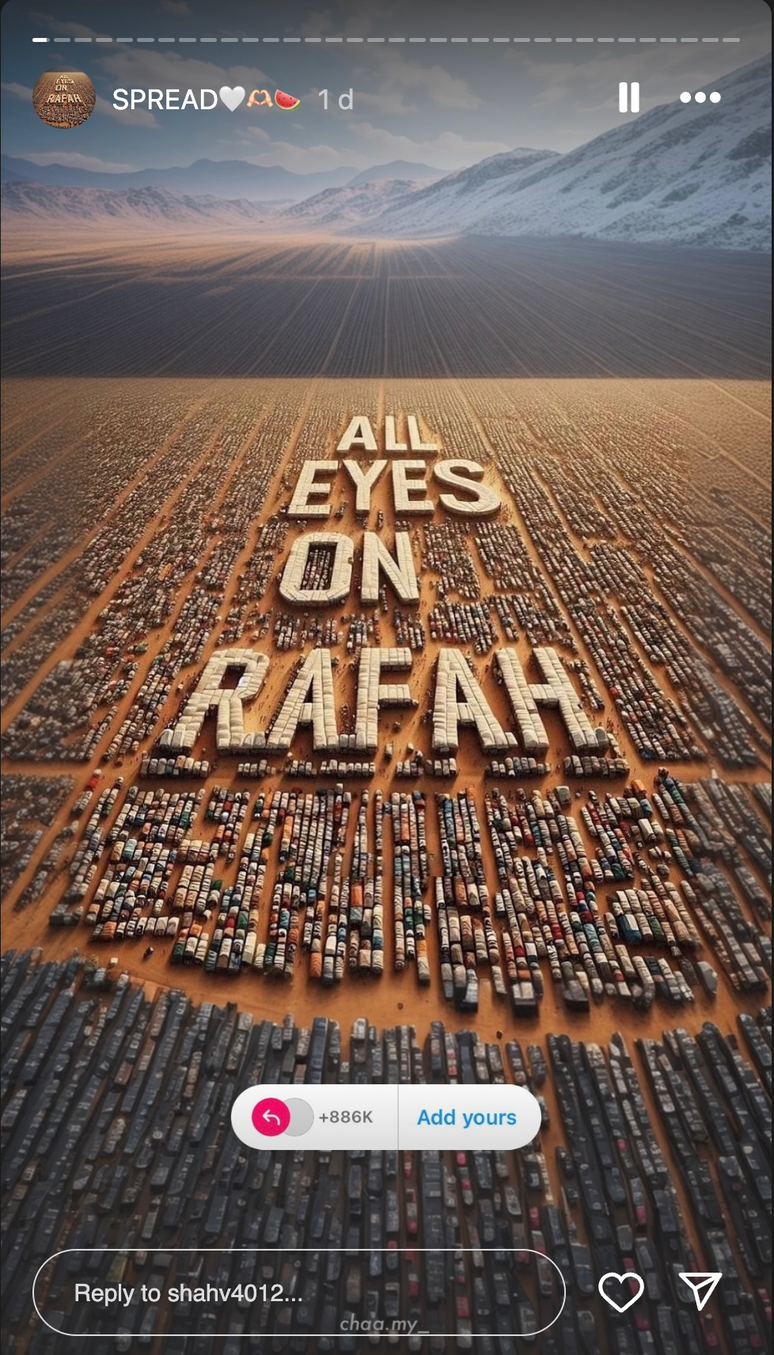
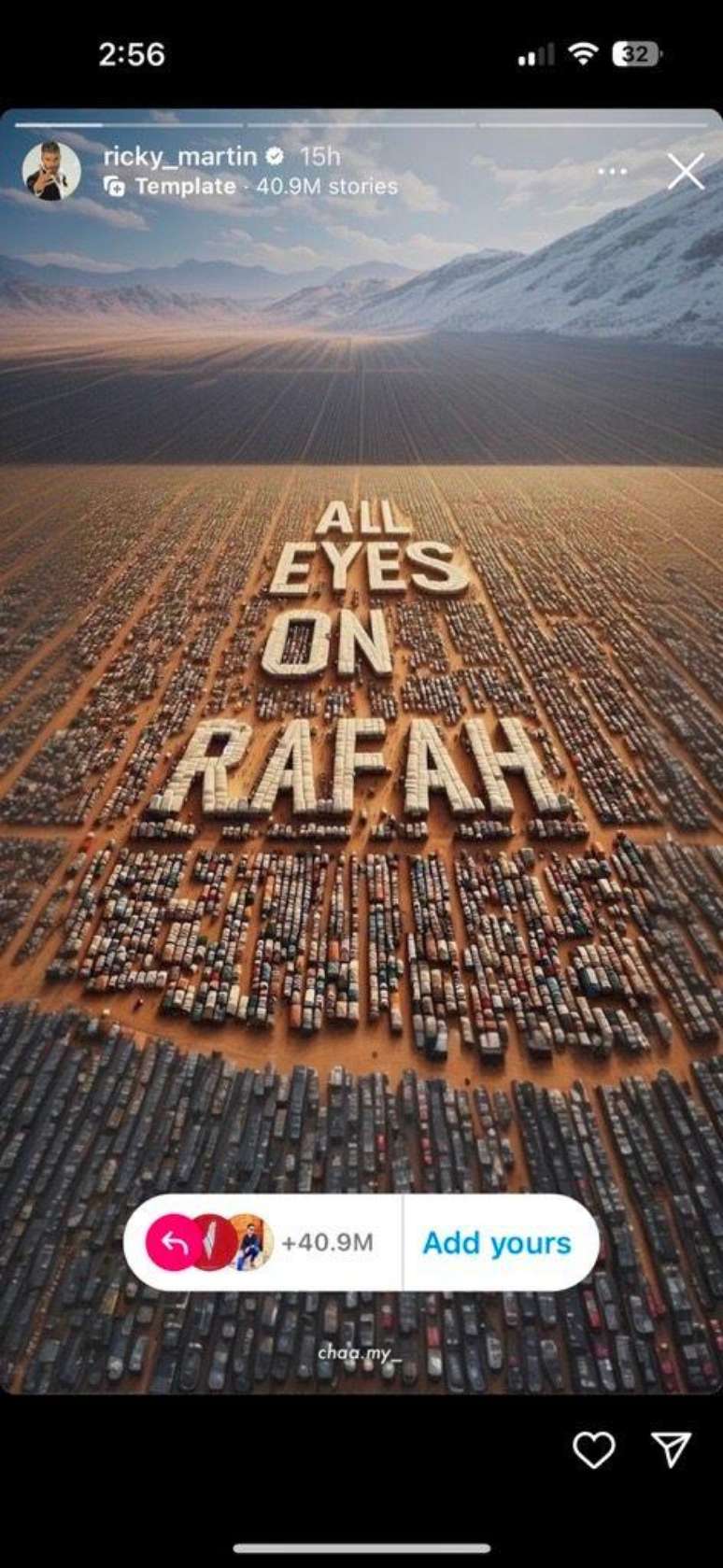
Maher Nammari, an e-marketing and artificial intelligence consultant, told BBC Arabic that the main reason to believe the image was generated by artificial intelligence is that it does not appear photorealistic. The image does not show an actual location or the city of Rafah.
It depicts a vast desert and a camp, with the text “All eyes on Rafah”.
Nammari says Instagram’s “Add Your Own” feature was used when it was shared widely.
It only takes two clicks for users to participate, making it easier for millions of people to join the campaign.
But Nammari points out that the nature of the incident itself and the online interaction that followed helped make the image resonate.
And he compared it to many previous campaigns, related to other themes, which failed to go viral in the same way, saying that “Sunday’s attack in Rafah generated widespread sadness”.
Nammari says another reason the image has spread widely is because it contains no bloody scenes, photos of real people, names or disturbing scenes, which could prevent it from being distributed by Instagram.
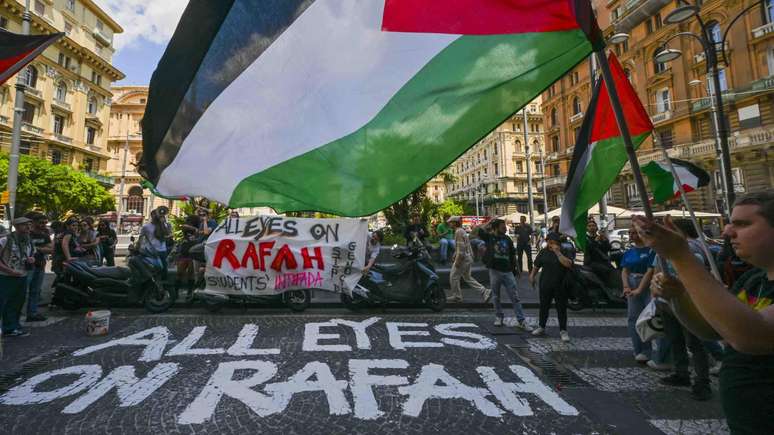
How do Instagram features help social campaigns spread widely?
Stories posted by “shahv4012” used the “Add Your Own” feature, which Instagram launched in 2021. It allows any user to post a photo and encourage interaction from their followers.
Nammari says that since it was made available, the feature has been used by the travel and tourism industry with one person posting a photo of a visited location or cafe and other users being able to add their own images of the same location .
He adds that the use of this resource in political, social campaigns or in matters of public opinion is recent.
“In most cases, those who start using this resource for political reasons intend to contribute to the launch of large-scale campaigns, because (the post) grows (in popularity).”
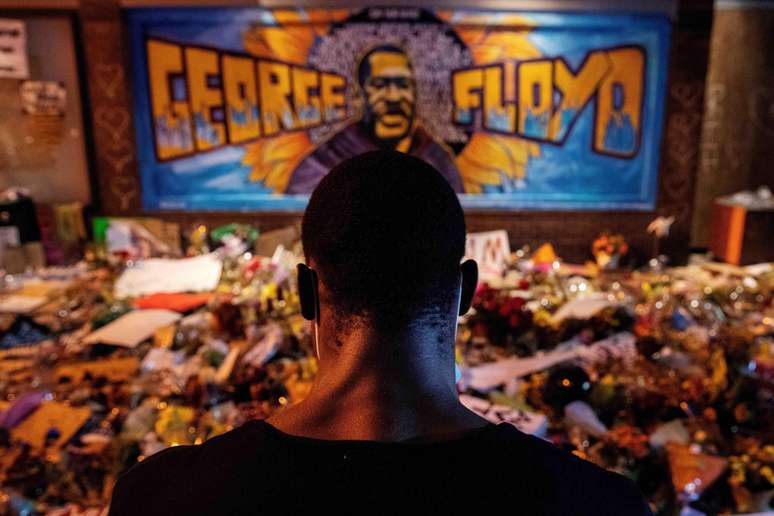
Previous campaigns
The campaign is by no means the first to use social media to spread a message of solidarity.
“Black Lives Matter,” a phrase, and specifically a hashtag, has been used to highlight the racism, discrimination, and inequality experienced by the Black population in 2020 and 2021.
Its use has grown in the United States following high-profile police killings, but it has also been used in the United Kingdom and other countries.
In Sudan, social media users launched a campaign after hundreds of people were killed and thousands were displaced in nearby cities and towns due to disputes between military factions.
One of the most prominent campaigns seen in the country, through social media, was “Blue for Sudan”.
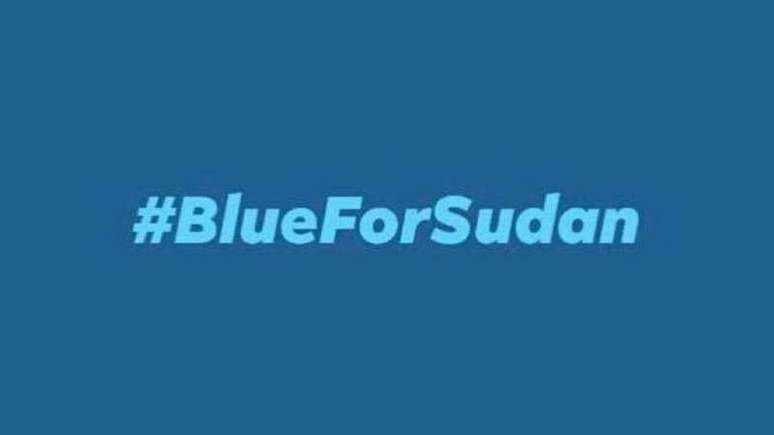
Users changed their profile photo to a blue image in solidarity with protesters in the capital Khartoum.
The phrase later became a general expression linked to political and economic demands.
In 2023, celebrities around the world shared posts in solidarity with the victims of a devastating earthquake that killed thousands of people in the Moroccan city of Marrakech.
The photos were published as Stories on Instagram to express condolences, collect donations and show solidarity with the families of the victims.
Source: Terra
Rose James is a Gossipify movie and series reviewer known for her in-depth analysis and unique perspective on the latest releases. With a background in film studies, she provides engaging and informative reviews, and keeps readers up to date with industry trends and emerging talents.

